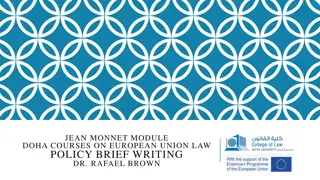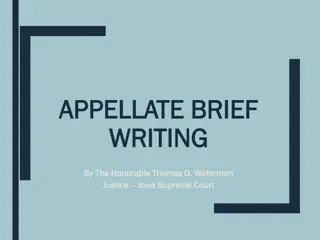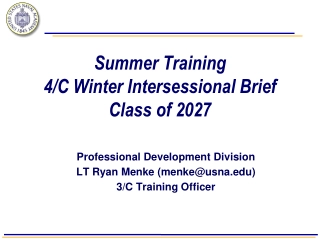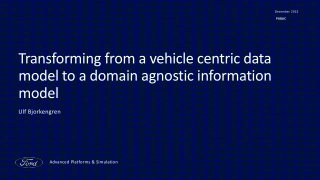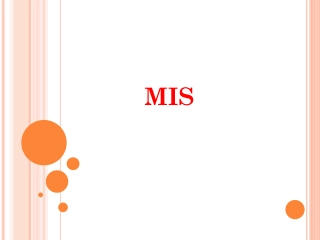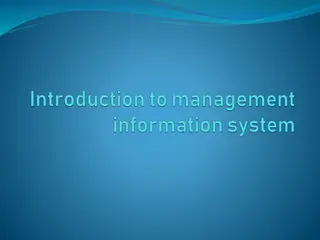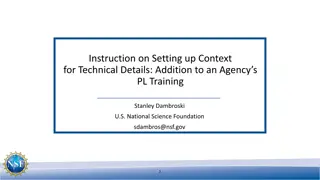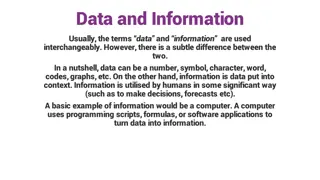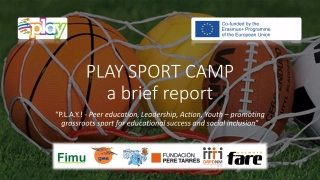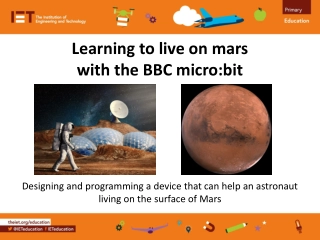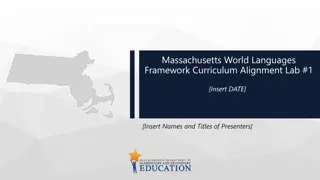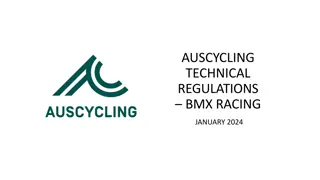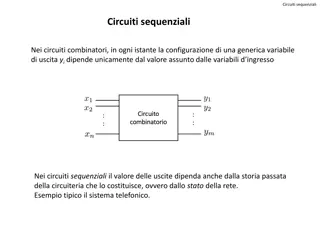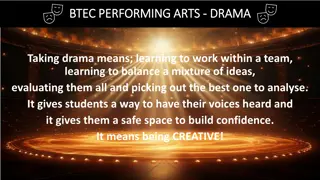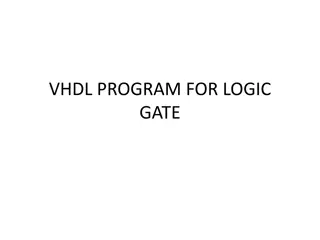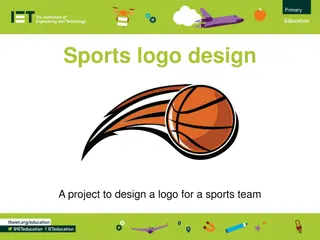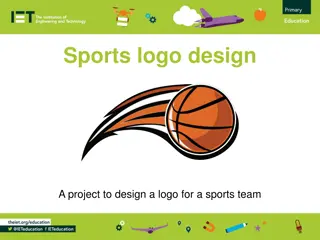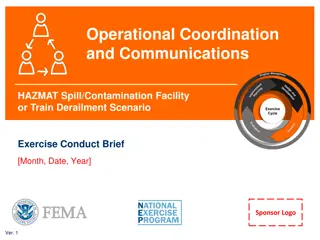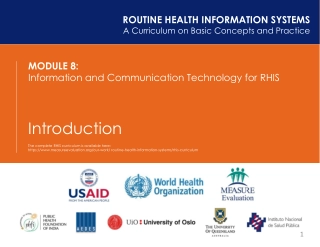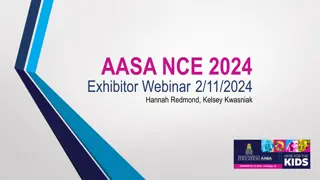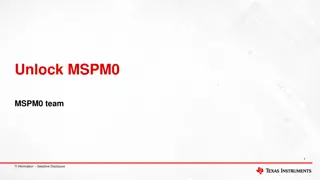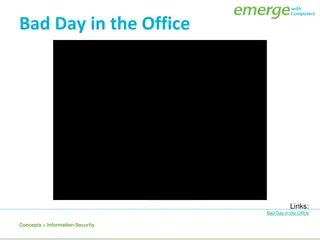USNCC Information Brief
The US Naval Community College aims to enhance operational readiness through world-class naval education. It focuses on developing warfighters committed to lifelong learning, ethical decision-making, and technical skills for the maritime environment. The college's strategic approach includes providing naval-relevant degrees, pathways from certificates to associate degrees, and pursuing accreditation.
Download Presentation
Please find below an Image/Link to download the presentation.
The content on the website is provided AS IS for your information and personal use only. It may not be sold, licensed, or shared on other websites without obtaining consent from the author. Download presentation by click this link. If you encounter any issues during the download, it is possible that the publisher has removed the file from their server.
Presentation Transcript
Spring 2024 USNCC Information Brief
Mission The U.S. Naval Community College will advance warfighting advantage and enhance operational readiness by providing world- class, naval-relevant education to a globally deployed force. Vision USNCC will develop warfighters across the force who are committed to lifelong learning, are steeped in naval traditions and values, have sound ethical decision-making ability, possess improved critical thinking and technical skills and have a deep understanding of the complex maritime environment in which they operate. 2
USNCC Command Element Randi Cosentino, Ed.D. USNCC President CMDCM Jordan Rosado USNCC Senior Enlisted Leader Robert Bob Kozloski USNCC Chief of Staff 4
USNCC Senior Service Liaisons Command Master Chief Dan Morales Sergeant Major Mike Hensley U.S. Coast Guard Liaison, USNCC U.S. Marine Corps Liaison, USNCC Command Master Chief for USCG Force Readiness Command Sergeant Major for USMC Senior Enlisted Academy 5
USNCC Strategic Approach The USNCC provides naval-relevant associate degrees and certificates in naval-relevant fields to enlisted Service Members Enlisted service members in Navy, Marine Corps, and Coast Guard 21st Century Skills to support operational readiness The USNCC as a consortium in partnership with leading institutions Maximize award for credit for training Shared Naval Studies Experience Strong four-year transfer pathways High impact naval-relevant concentrations Fully online delivery (asynchronous) USNCC pursuing Middle States Commission on Higher Education (MSCHE) accreditation Stackable certificates leading to associate degree 6
Certificate to Associate Degree Pathway USNCC ASSOCIATE DEGREE Professional Focus Certificate (24 semester hours / 8 classes) FY 22/23 Cybersecurity Data Analytics Aviation Maintenance Technology Maritime Logistics Organizational Leadership Military Studies Nuclear Engineering Technology Autonomous/Uncrewed Systems CORE CURRICULUM Naval Studies Certificate (15 semester hours / 5 classes) Intellectual Skills (General Education) (21 semester hours / 7 classes) Modeled after NROTC Naval Science curriculum with five required courses: FY 23/24 - 24/25 (TBD) Engineering Programs Artificial Intelligence/Machine Learning Emergency Services Management Sciences Health Sciences Communications Technology Emerging Technology Instructional Design / Education Naval Ethics and Leadership Modern Naval History Naval Force Design and Concepts Civil / Military Organization & Policies Introduction to Geopolitics Analytical Inquiry, Communications, and Information Literacy courses taken at Partner Institutions Courses are stackable and transferable to partner institutions via USNCC Consortium 8 *Future Programs are TBD
USNCC Naval Studies Certificate The U.S. Naval Community College offers the Naval Studies Certificate as the core of every USNCC degree, leveraging USNCC's unique relationship with the naval services. Strong academic foundation relevant to naval service Five-course naval core relevant to Navy, Marine Corps, and Coast Guard Make connections across a range of ratings and MOSs Comparable to curriculum at USNA and NROTC Advanced intellectual & 21st-century skills Naval history, geopolitics, civic and military context, and force structure and organization Develop learning, ethics, and judgement relevant outside of the classroom 9
Naval Studies Courses NAV 101 Naval Ethics & Leadership: Provides students with the foundational knowledge to assist them in understanding their role as a member of the United States military including their promise to support and defend the Constitution as well as be persons of exemplary character, worthy of moral praise. NAV 102 Modern Naval History: Presents an overview of modern naval history, with an emphasis on understanding the roles that the Naval Services (Marine Corps, Navy, Coast Guard) have played and how they relate to the relevant period of history and conflicts therein. NAV 103 Naval Force Design: Instructs USNCC students in the organization of naval forces, in fundamental concepts of naval operations, and prepares students to recognize how naval power elements can be applied across strategic, operational, and tactical levels of warfare. NAV 104 Civilian/Military Relations, Organization, and American Government: Provides students with an overarching understanding of the organization of the American political system and the role the military plays in that system. NAV 105 Introduction to the Geopolitics: Assists students in understanding the role of the United States in the international system, as well as the challenges it faces in the 21st Century. 10
Military Studies The Associate of Arts in Military Studies is an interdisciplinary degree designed for students who are interested in becoming better enlisted leaders by developing your skills in military history, organizational leadership, and political science. The curriculum explores recent history, development, and strategies that drive the U.S. armed forces. 11
Organizational Leadership The Associate of Arts in Organizational Leadership degree is designed for students who are interested in becoming better enlisted leaders by developing skills in problem solving, effective communication, program assessment, resource management, and understanding emerging technologies. The curriculum focuses on the theory and practice of organizational leadership, behavioral dynamics, ethics, and resource allocation and change across organizations. 12
Logistics (Maritime) The Associate of Science in Logistics (Maritime) degree is designed for students who are interested in becoming better enlisted leaders by developing skills in logistics and supply chain management, communication, financial management and accounting, analytics, and managerial skills. The curriculum includes a Maritime Logistics professional certificate (18 s.h.) that examines the theories, concepts, and components of logistics, with particular attention to serving/supporting maritime and military logistics operations. 13
Technical Studies (Maritime Logistics) The Associate of Applied Science in Technical Studies degree program is designed for students in Logistics with training, work, experience, and collegiate coursework who are interested in becoming better enlisted leaders by developing foundational knowledge and skills to apply in a logistics and supply chain management, including purchasing and inbound logistics, handling, warehousing, inventory and controls, and transportation. Curriculum includes 18 credit hours in logistics and the opportunity to earn a Career Studies Professional Certificate in Logistics. Upon degree completion, students will have a theoretical and practical understanding of supply chain processes, purchasing, inventory and warehouse management. 14
Nuclear Engineering Technology The Nuclear Engineering Technology (NET) program is designed for Sailors who are interested in becoming better enlisted leaders in the fundamentals of nuclear engineering technology. The NET program builds upon the foundation of previous coursework and military NNPP training. Graduates of this program increase their technical capacity within their day-to-day role and lay the foundation for future studies in Nuclear Energy Engineering Technology or related programs of study. 15
Data Analytics The Associate of Science in Data Analytics offers a comprehensive coverage of Information Technology foundations & applications, scripting & programming, network security, spreadsheets, data management, probability & statistics, and data management applications. Competency-based education (CBE) means the student goes at their own pace, rather than by the calendar. Course includes two built-in credentials: the CompTIA Data+ and the AWS Cloud Practitioner certificates. 16
Cybersecurity and Information Assurance The Associate of Science in Cybersecurity and Information Assurance program is designed for students who are interested in becoming better enlisted leaders by developing your skills in cybersecurity policy, software assurance, network defense, and programming including scripting. Curriculum also includes six CompTIA certificates (A+, Network+, Security+, CySA+, Secure Infrastructure Specialist, and Security Analytics Professional) and a Professional Certificate in Network and Cyber Defense Foundations. 17
General Studies with Computer Studies Specialization The Associate of Arts in General Studies with Computer Studies Specialization program is designed for students who are interested in becoming better enlisted leaders by developing introductory skills in programming, problem solving, or algorithm design. Curriculum includes innovative and multi- disciplinary approach to prepare students to become leaders in the protection of data, to complete industry professional certificates (A+, Network+, Security+, Cloud+, AWS Cloud Practitioner, & CCNA), complete a Professional Certificate in Computer Networking. 18
Cybersecurity The Associate of Applied Science in Cybersecurity program is designed for students who are interested in becoming better enlisted leaders by developing introductory skills in network administration, IT technical support, and cybersecurity. Curriculum includes material that builds the foundation for knowledge covered in Windows Server, Sec+. Linux+, and Network+ certificates. Graduates are prepared to study for the A+ Software, A+ Hardware, and AWS Cloud Practitioner exams. This is in addition to the Network Administration Career Studies Certificate. 19
Aviation Maintenance The Associate of Science in Aviation Maintenance degree program is designed for students who are interested in becoming better enlisted leaders by developing maintenance knowledge and critical-thinking skills to apply in the global aviation/aerospace maintenance environments. Curriculum includes innovative and multi-disciplinary approach to prepare students to develop an understanding of the strategic and global landscape of aviation maintenance with an emphasis on meeting current industry needs in the field of aviation and aerospace. ASAVM degree completion includes 18 credit hours in aviation maintenance and the opportunity to earn an Aviation Maintenance Part 65 Certificate. Upon degree completion, students who satisfy experience requirements* are prepared to for the Federal Aviation Administration (FAA) Airframe and Powerplant Maintenance License testing process. *Experience requirements for licensure established by FAA 20
Uncrewed Systems The Associate of Science in Uncrewed Systems (ASUS) degree program is designed for students who are interested in becoming better enlisted leaders by developing foundational knowledge and skills to apply in a broad array of uncrewed systems environments to include aircraft systems, robotics, maritime systems operations, and legal and regulatory compliance. Curriculum includes a combination of general education and core courses using an innovative and multi-disciplinary approach covering diverse application and operations of uncrewed systems including military, agriculture, environmental monitoring, and search and rescue. ASUS degree completion includes 18 credit hours in uncrewed systems and the opportunity to earn an Uncrewed Systems Technology Professional Certificate. Upon degree completion, students will have an understanding of uncrewed aircraft systems, uncrewed aircraft robotics, uncrewed maritime systems and operations, uncrewed systems legal and regulatory compliance, and human factors. 21
Example USNCC Enlisted Education Pathway AS Cybersecurity Bachelor s Degree Bachelor of Science in Cybersecurity USNCC Pathway Naval Studies Certificate Prior Learning Military Training Network & Cyber Defense Certificate Civilian Certifications or Training Bachelor s Degree College-Level Coursework School B TA/ VOLED Option School C Post-911 GI Bill Alternate Pathways 23
USNCC Eligibility and Application Process Eligibility Requirements: Good standing at your command Apply online at USNCC.edu and submit FERPA form Command Nomination Active Duty US Navy, US Marine Corps, or US Coast Guard (and Coast Guard Reservists) (E1 E9) USNCC prioritizes applicants for admission Must not be within 6 months of service separation at course start Adequate off-duty time to dedicate to coursework (~10 - 12 hours per week) Command approval Candidate notified of admission status and next steps College transcripts required for admission with some partner institutions 24
Benefits COMMAND/LEADERSHIP SERVICE MEMBER Fully funded certificate and associate degree programs Naval-relevant, college education and learning for enlisted service members to support operational needs, resulting in readiness and effectiveness Curriculum fosters Intellectual Skills development (analytical inquiry, information literacy, etc.) needed to be the world's most intellectually capable maritime force Direct education pathways for enlisted service members that encourages timely progress to certificates/degrees helps with retention Investment in education for enlisted service members provides earlier opportunities in one s career to develop the habits of mind for continuous learning and professional leadership Approx. 10-12 hours per class/week required off-duty, not impacting operations Direct education pathway with select military-friendly institutions Naval-relevant education that matches up to private-sector labor demands (supports career readiness) Online/flexible course schedule and delivery options to support OPTEMPO Comprehensive student support USNCC education and course offerings do NOT deduct from TA benefits Stackable certificates and transferable courses via USNCC Consortium Agreement 25
Questions? Leadership Inquiries Please Email info@usncc.edu Interested students should complete an online interest form or application at: https://www.usncc.edu/ Follow us on social media! @U.S. Naval Community College @U.S. Naval Community College @USNCCollege @USNCCollege 26


